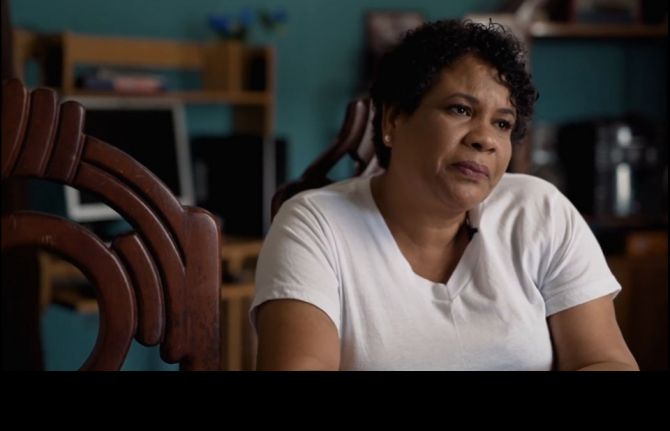

Feature Story
From HIV survivor to COVID-19 responder
03 March 2021
03 March 2021 03 March 2021Ingrid Bretón learned that she was living with HIV when she was 19 years old. It was 1994 and HIV treatment was not yet available in the Dominican Republic.
“I lasted almost five years alive, but dead inside,” she remembers. “I went through every denial process that a newly diagnosed person goes through. Health centres did not want to assist me. I lived every kind of stigma and discrimination.”
In her town, La Romana, she was known as “the AIDS girl”. It was impossible to find work.
HIV treatment helped changed the trajectory of her life. With the guidance of her doctor, José Román, she became the first woman living with HIV in La Romana known to have given birth to an HIV-free baby. As she continued treatment it occurred to her that she was perfectly healthy and could live a more meaningful life.
“I thought to myself, “I am not getting sick, my hair is not falling off, I do not have sores, I do not have AIDS. I want to do things,”” Ms Bretón remembers.
In 2002 she formed the Paloma Group Foundation (La Fundación Grupo Paloma), which provides psychosocial support, legal assistance and job opportunities for people living with and affected by HIV in the eastern region of the country. The organization also plays a key advocacy role, bringing visibility to issues such as treatment adherence, prevention and stigma and discrimination.
One of the foundation’s innovations is an agriculture project that employs people living with HIV.
“It’s a beautiful process,” Ms Bretón says while walking through the sunny, red earth fields, past tomatoes, papayas and bananas. “The idea is that people living with HIV are able to move forward, working and providing for their families.”
The families with whom the Paloma Group Foundation works have been directly affected by the COVID-19 pandemic. The work of the foundation has been critical during this time. Its volunteers do home deliveries of food, medicine and clothing. The foundation is a source of connection and emotional support at a time when communities living with HIV are more isolated than ever due to social distancing measures.
The first Rapid Survey on the Needs of People Living with HIV in the Dominican Republic in the context of COVID-19 found that while 92% of respondents received their antiretroviral therapy, roughly one in six had less than one month’s supply left. Thanks to the advocacy of the UNAIDS Country Office for the Dominican Republic, protocols have now been amended so that people living with HIV and accessing treatment through the public health system can receive a three- to six-month supply of their medicine at one time.
The country office has urged the government to strengthen comprehensive care programmes, including through alliances with civil society. For example, the Paloma Group Foundation provided assistance to people living with HIV at the Francisco Gonzalvo Provincial Hospital during a five-month period in 2020 when medical personnel were not available at the La Romana facility.
The UNAIDS Country Office for the Dominican Republic has also called for particular attention to be given to the social protection and food security needs of people living with HIV who are in economically fragile situations. The office responded quickly to the fallout of COVID-19, offering support to the Paloma Group Foundation and other community organizations contributing to the national HIV response. UNAIDS’ comprehensive response included the provision of personal protective equipment and information specifically for the community of people living with HIV. The second stage of their response included mobilization of nutrition support.
“This was of great value to families given the economic crisis caused by COVID-19,” Ms Bretón says.
“Civil society plays the leading role of bringing awareness to communities and advocating on their behalf,” says the UNAIDS Country Director for the Dominican Republic, Bethania Betances. “As we respond to two pandemics—HIV and COVID-19—is it vital that they are at the decision-making table to help shape an effective, humane response.”
Watch: The extraordinary story of a woman living with HIV in the Dominican Republic



